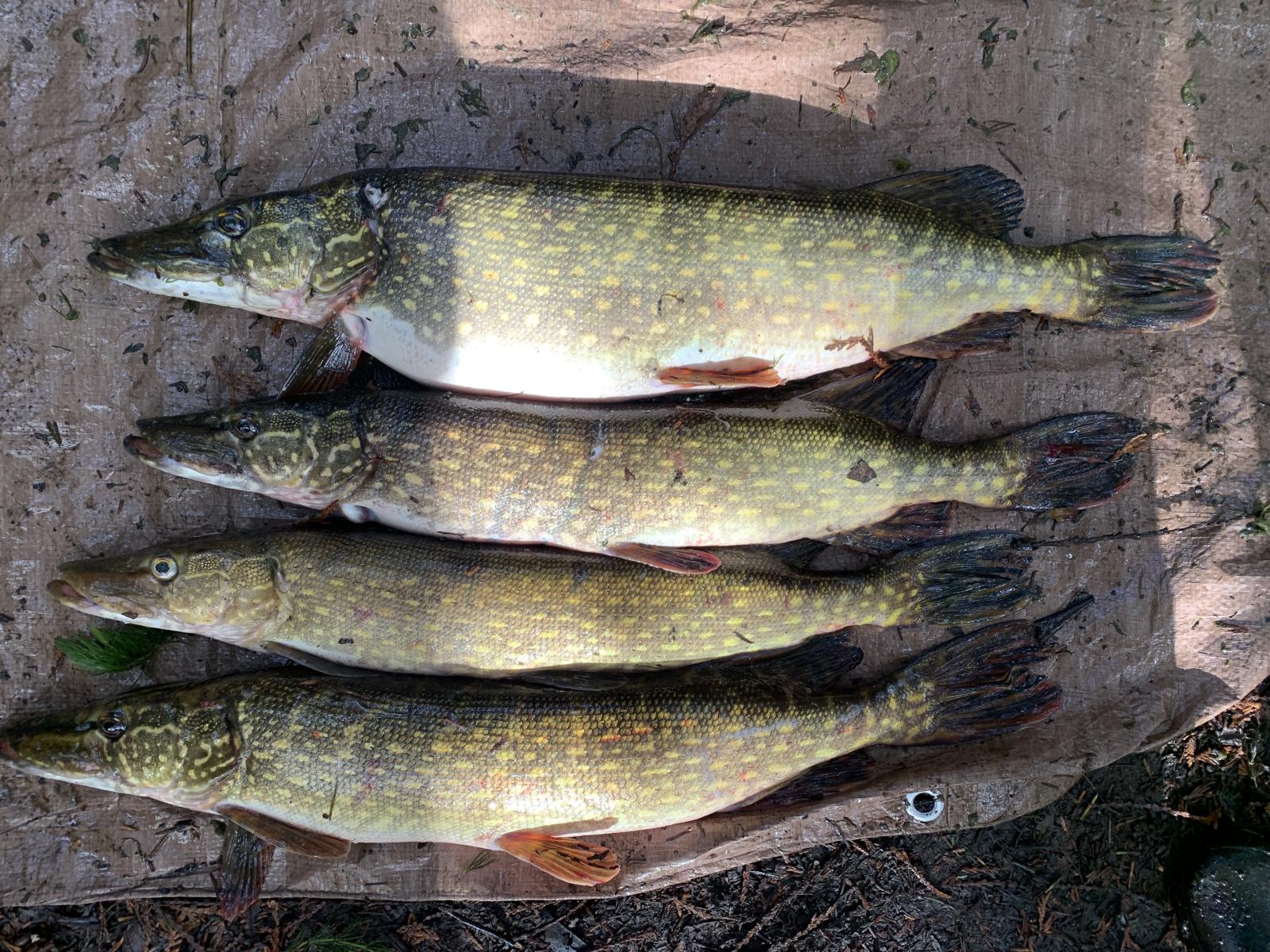ARCHIVED NEWS RELEASE
This document is provided for archival purposes only. Archived documents
do not reflect current WDFW regulations or policy and may contain factual
inaccuracies.
News release April 29, 2024
Contact: Aquatic Invasive Species unit, 1-888-WDFW-AIS
Media Contact: Chase Gunnell, 360-704-0258
MILL CREEK – This month, Washington Department of Fish and Wildlife (WDFW) crews used gillnets to remove northern pike from Carefree Lake (also known as Westside Lake) on San Juan Island after illegal introductions of the invasive fish species. Twenty-two adult pike have been removed so far from the small lake at Limekiln Preserve.
WDFW crews also removed two northern pike from Lake Washington in March and April of this year during ongoing efforts to monitor non-native predatory fish species and reduce their impacts on salmon. At least six pike have been removed from Lake Washington since 2017, and the Department believes the invasive fish were illegally introduced into the large lake in recent years.
Highly invasive and aggressive predators, in Washington state northern pike (Esox Lucius) are a harmful non-native fish classified as a prohibited aquatic invasive species.
If anglers catch northern pike in new areas, WDFW asks that they kill the pike immediately and do not release it, take a photo, and report it by calling 1-888-WDFW-AIS, email at ais@dfw.wa.gov, or use the Washington Invasive Species Council reporting form or mobile app at invasivespecies.wa.gov/report-a-sighting/.
Under Washington regulations, prohibited invasive species may be killed and retained if the person is certain about species identification and assumes responsibility for correct identification and adherence to state rules and fishing regulations.
“Pike can live more than 20 years, grow larger than 45 pounds, produce a large number of young, and consume large quantities of amphibians, birds, small mammals, and fish, including impacting Endangered Species Act listed salmon and trout,” said Justin Bush, WDFW’s Aquatic Invasive Species policy coordinator. “If left unchecked, northern pike will overpopulate and cause significant impacts on Washington’s aquatic ecosystems.”
At the request of the Muckleshoot Indian Tribe and Governor Jay Inslee, and supported by WDFW, the Washington State Legislature provided $700,000 in supplemental funding earlier this year for predatory fish suppression and monitoring in Lake Washington. In coordination with the Muckleshoot Indian Tribe, WDFW will continue netting targeted areas of the lake to remove pike, walleye, perch, bass, crappie, shad, and other non-native fish that feed on young salmon rearing in Lake Washington or migrating through the lake to Puget Sound.
Carefree Lake (also known as Westside Lake) is a reservoir on the San Juan County Conservation Land Bank’s Limekiln Preserve. Following reports from a local angler, in March WDFW crews used gillnets to survey the lake, capturing nine mature pike: seven males and two females with thousands of eggs ready to spawn. WDFW removed 13 additional pike in April.
WDFW is coordinating with the Land Bank to continue netting as resources allow, and to develop a long-term pike removal plan, including potentially drawing down the reservoir.
Pike may have been introduced to additional waterbodies on San Juan Island, and an investigation is ongoing. WDFW biologists took environmental DNA samples from several nearby lakes and ponds to study whether pike may be present.
The introduction of northern pike violates state laws which ban the possession of live prohibited invasive species or their transport, sale, or introduction into state waters.
Tips regarding how pike got to San Juan Island or Lake Washington may be provided to WDFW Police at: wdfw.wa.gov/about/enforcement/report or by calling 877-933-9847, or by anonymously texting 847411 (TIP411) by entering WDFWTIP, followed by a space, and then entering your report.
WDFW recently finalized a statewide Interagency Northern Pike Rapid Response Plan, which is now available online.
The Washington Department of Fish and Wildlife works to preserve, protect and perpetuate fish, wildlife and ecosystems while providing sustainable fish and wildlife recreational and commercial opportunities.
